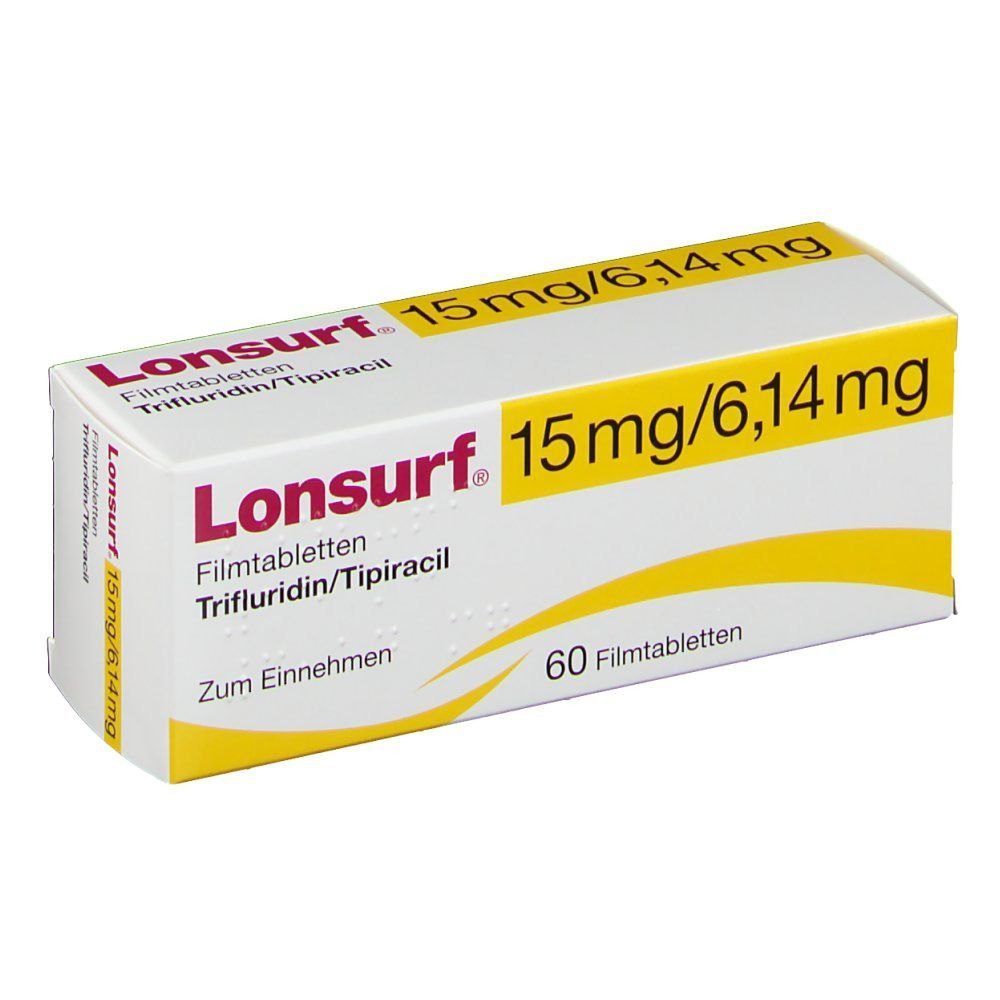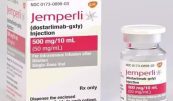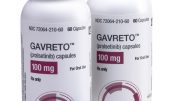Trifluridine and tipiracil with bevacizumab is approved by FDA for previously treated metastatic colorectal cancer
August 2023: For metastatic colorectal cancer (mCRC) that has already been treated with fluoropyrimidine, oxaliplatin, and irinotecan-based chemotherapy, an anti-VEGF biological therapy, and if RAS wild-type, an anti-EGFR therapy, the Food and Drug Administration has approved trifluridine and tipiracil (LONSURF, Taiho Oncology, Inc.). LONSURF, a single-agent medication, has already received FDA approval for this use in September 2015.
In SUNLIGHT (NCT04737187), a randomised, open-label, multicenter, international trial comparing LONSURF with bevacizumab to single-agent LONSURF in 492 patients with metastatic colorectal cancer who had received a maximum of two prior chemotherapy regimens and showed progression of their disease or intolerance to the last regimen, safety and efficacy were assessed.
Overall survival (OS) and progression-free survival (PFS) were the key effectiveness outcome metrics. Patients assigned to the LONSURF plus bevacizumab arm of the trial showed a statistically significant OS improvement when compared to patients assigned to the LONSURF arm (Hazard ratio 0.61; 95% CI: 0.49, 0.77; 1-sided p0.001). The median OS for the LONSURF plus bevacizumab arm was 10.8 months (95% CI: 9.4, 11.8) and for the LONSURF arm was 7.5 months (95% CI: 6.3, 8.6). In the LONSURF plus bevacizumab arm, the median PFS was 5.6 months (95% CI: 4.5, 5.9), while in the LONSURF arm, it was 2.4 months (95% CI: 2.1, 3.2) (Hazard ratio: 0.44; 95% CI: 0.36, 0.54; 1-sided p0.001).
Neutropenia, anaemia, thrombocytopenia, fatigue, nausea, increased AST, increased ALT, increased alkaline phosphatase, decreased sodium, diarrhoea, stomach discomfort, and decreased appetite are the most frequent side events or laboratory abnormalities for LONSURF with bevacizumab (20%).
On days 1 through 5 and days 8 through 12 of each 28-day cycle, the recommended dose of LONSURF is 35 mg/m2 taken orally twice daily with food. For details about bevacizumab dosage, consult the prescribing information.
View full prescribing information for LONSURF.
Susan Hau is a distinguished researcher in the field of cancer cell therapy, with a particular focus on T cell-based approaches and cancer vaccines. Her work spans several innovative treatment modalities, including CAR T-cell therapy, TIL (Tumor-Infiltrating Lymphocyte) therapy, and NK (Natural Killer) cell therapy.
Hau's expertise lies in cancer cell biology, where she has made significant contributions to understanding the complex interactions between immune cells and tumors.
Her research aims to enhance the efficacy of immunotherapies by manipulating the tumor microenvironment and exploring novel ways to activate and direct immune responses against cancer cells.
Throughout her career, Hau has collaborated with leading professors and researchers in the field of cancer treatment, both in the United States and China.
These international experiences have broadened her perspective and contributed to her innovative approach to cancer therapy development.
Hau's work is particularly focused on addressing the challenges of treating advanced and metastatic cancers. She has been involved in clinical trials evaluating the safety and efficacy of various immunotherapy approaches, including the promising Gamma Delta T cell therapy.
- Comments Closed
- August 14th, 2023






mCRC third-line treatment, metastatic colon cancer options, oral chemotherapy regimen, RECOURSE trial update, refractory colorectal cancer therapy, TAS-102 Avastin combo, trifluridine tipiracil bevacizumab, VEGF inhibitor combination
CancerFax is the most trusted online platform dedicated to connecting individuals facing advanced-stage cancer with groundbreaking cell therapies.
Send your medical reports and get a free analysis.
🌟 Join us in the fight against cancer! 🌟
Привет,
CancerFax — это самая надежная онлайн-платформа, призванная предоставить людям, столкнувшимся с раком на поздних стадиях, доступ к революционным клеточным методам лечения.
Отправьте свои медицинские заключения и получите бесплатный анализ.
🌟 Присоединяйтесь к нам в борьбе с раком! 🌟